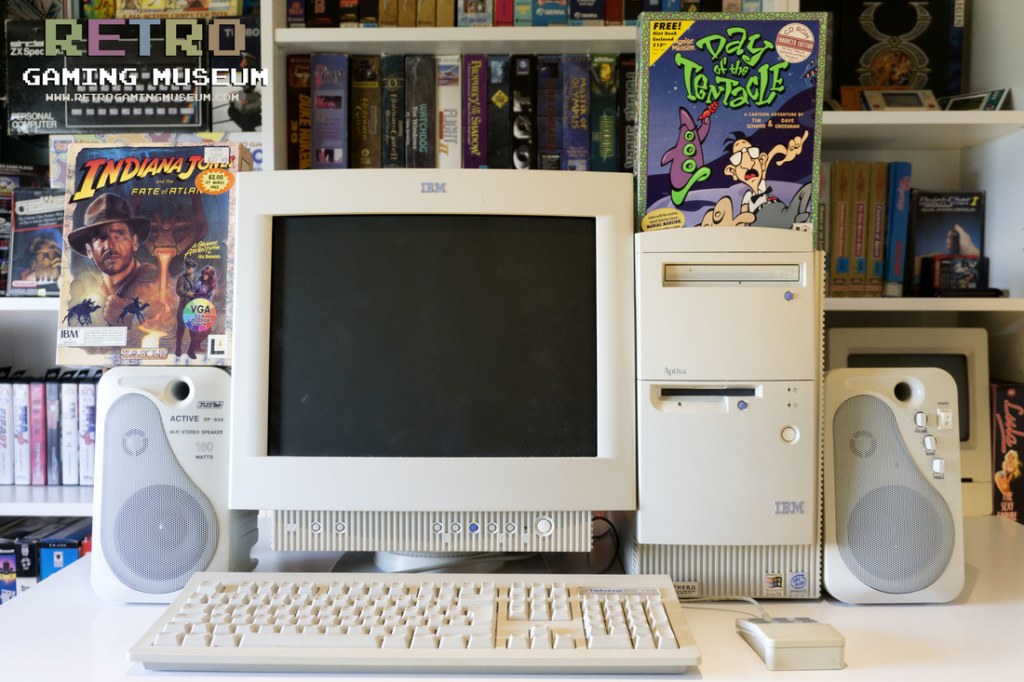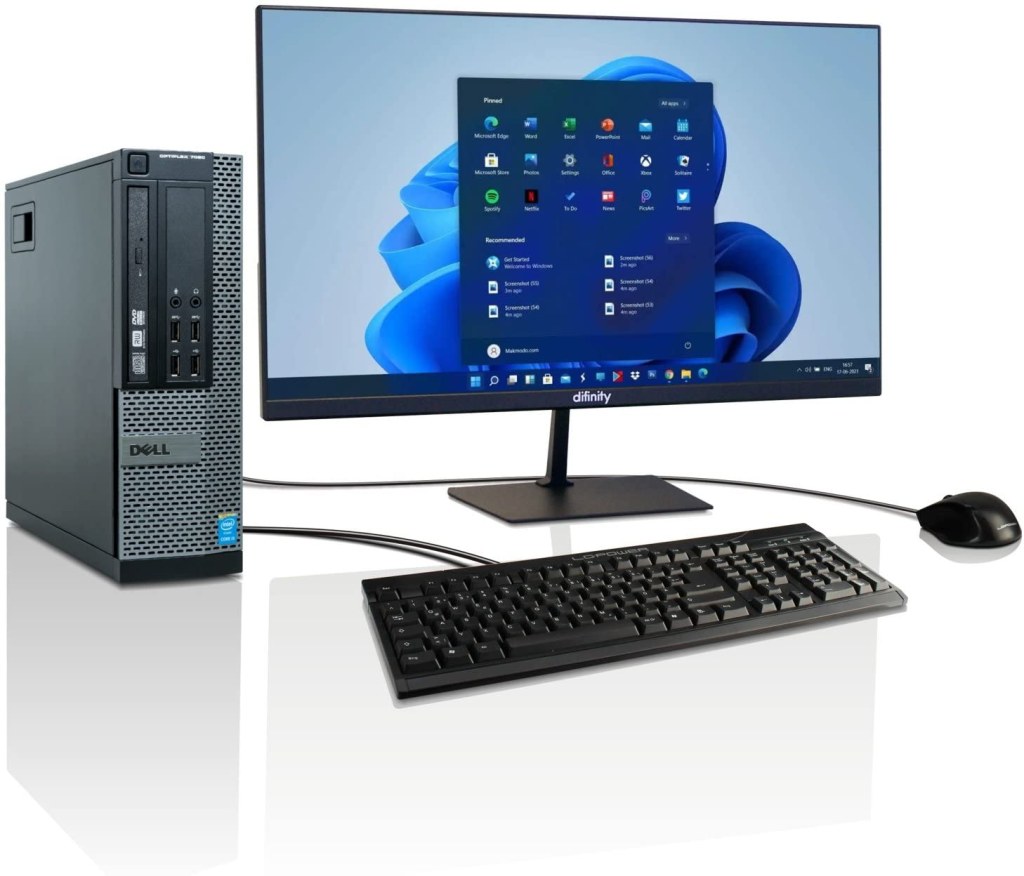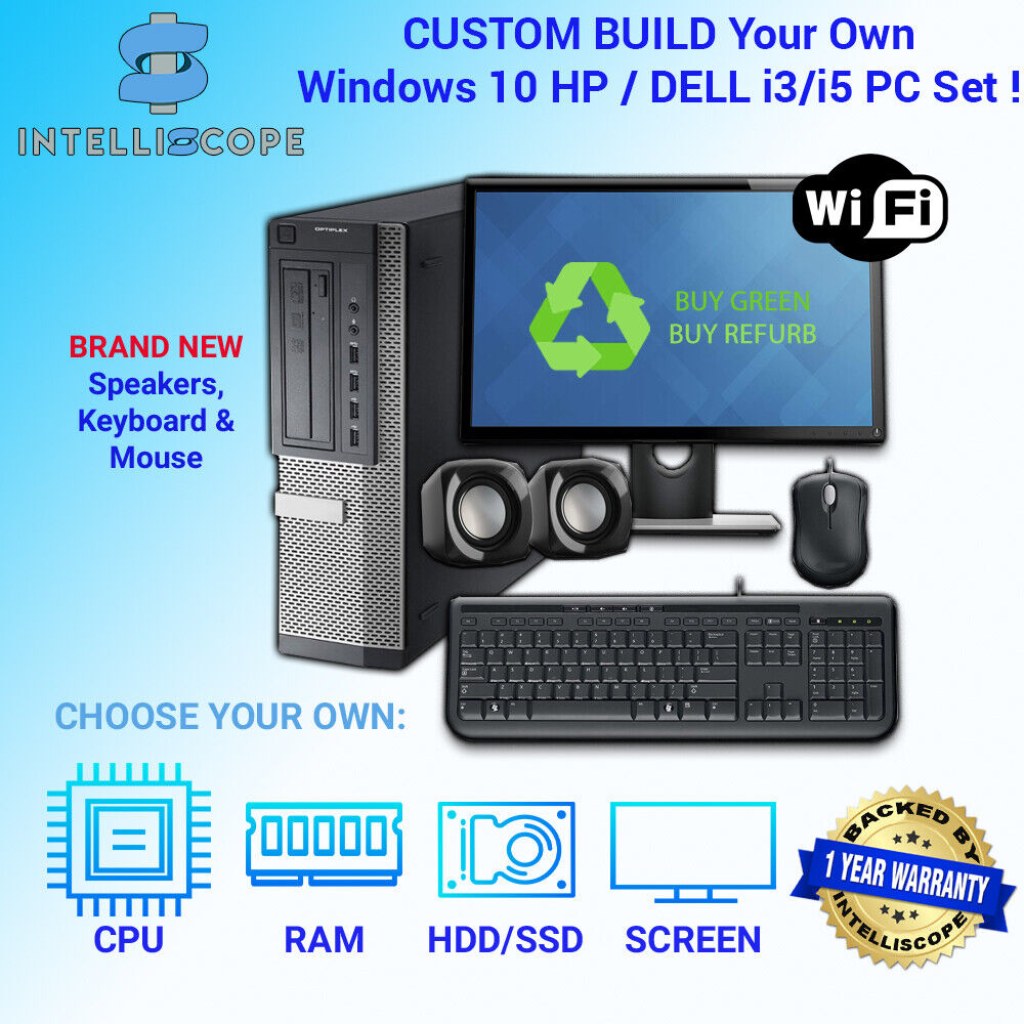Desktop Computer Year: The Evolution of Computing Power
Greetings, Readers! Today, we delve into the fascinating world of desktop computers. In this article, we will explore the history, advancements, advantages, and disadvantages of these powerful machines. So, sit back, relax, and embark on a journey through the revolution of computing.
Introduction
The desktop computer has come a long way since its inception. From the bulky and slow machines of the past, it has transformed into sleek, lightning-fast devices that have become an essential part of our lives. In this introduction, we will provide a comprehensive overview of the desktop computer year, highlighting its significance and impact on our society.
Desktop computers have revolutionized the way we work, communicate, and entertain ourselves. They have become a crucial tool for businesses, students, professionals, and individuals alike. With their processing power, storage capacity, and versatility, desktop computers have become the backbone of modern computing.
Throughout the years, desktop computers have undergone significant changes. Technological advancements have led to smaller form factors, increased performance, and improved user experience. With each passing year, manufacturers push the boundaries of what desktop computers can achieve, making them more powerful and efficient.
The desktop computer year is not just about the hardware; it encompasses the software, operating systems, and applications that have shaped the computing landscape. From the early days of DOS to the modern Windows, macOS, and Linux operating systems, software development has played a crucial role in the evolution of desktop computers.

Image Source: retrogamingmuseum.com
Now, let us embark on a journey through the key aspects of desktop computer year, exploring its origins, significance, and the advancements that have propelled it to its current state.
What is a Desktop Computer Year?
To understand the concept of the desktop computer year, we must first define what a desktop computer is. Simply put, a desktop computer is a personal computer designed to be used at a desk or workstation. It consists of a monitor, keyboard, mouse, and a central processing unit (CPU) housed in a case.
In the context of the desktop computer year, it refers to the specific year or time period in which significant advancements, innovations, or milestones occurred in the world of desktop computers.
Throughout history, there have been several notable desktop computer years, where groundbreaking technologies and features were introduced, shaping the course of computing. These years marked pivotal moments that propelled the desktop computer industry forward and paved the way for the devices we use today.
The Evolution of Desktop Computers
The earliest desktop computers were large, cumbersome machines that occupied entire rooms. They were primarily used by government agencies, research institutions, and corporations. However, as technology advanced, desktop computers became more accessible to the general public.

Image Source: media-amazon.com
In the 1970s, the introduction of microprocessors revolutionized the desktop computer industry. It led to the development of personal computers that were smaller, more affordable, and more powerful. The release of the Altair 8800 in 1975 and the Apple II in 1977 marked the beginning of the personal computer revolution.
In the following decade, the IBM PC, released in 1981, became the standard for desktop computers. It popularized the use of the x86 architecture and introduced the MS-DOS operating system, which laid the foundation for future operating systems.
The 1990s witnessed a boom in desktop computer sales as advancements in technology led to improved performance and multimedia capabilities. The introduction of graphical user interfaces (GUIs) and the Windows operating system by Microsoft in 1985 revolutionized the user experience, making desktop computers more intuitive and user-friendly.
As we entered the new millennium, desktop computers continued to evolve at a rapid pace. Processors became faster, storage capacities increased, and graphic capabilities improved. The emergence of wireless connectivity and the internet further transformed the way we use desktop computers, enabling seamless communication and access to information.
Today, desktop computers have become powerhouses capable of handling complex tasks, such as video editing, 3D rendering, and gaming. They offer unparalleled performance, customization options, and expandability, making them the preferred choice for professionals and enthusiasts.
Who Uses Desktop Computers?

Image Source: ebayimg.com
Desktop computers are used by a wide range of individuals and organizations. From students and professionals to gamers and content creators, desktop computers cater to diverse needs and requirements.
In the academic world, desktop computers are indispensable tools for students and researchers. They provide the processing power and storage capacity required for data analysis, programming, and resource-intensive tasks. Additionally, desktop computers offer a comfortable and productive environment for studying and completing assignments.
Businesses and professionals rely heavily on desktop computers for their computing needs. They use them for tasks such as accounting, project management, data analysis, and content creation. The power, reliability, and security offered by desktop computers make them ideal for businesses that require robust computing capabilities.
Gamers are another group of enthusiasts who heavily rely on desktop computers. Gaming desktops offer superior performance, high-quality graphics, and customization options. PC gaming enthusiasts often invest in powerful hardware configurations to ensure smooth gameplay and optimal visual fidelity.
Content creators, such as video editors, graphic designers, and animators, also depend on desktop computers for their work. The processing power and graphic capabilities of desktop computers enable them to tackle resource-intensive tasks and achieve professional-grade results.
When Did Desktop Computers Become Popular?
The popularity of desktop computers began to surge in the late 1970s and early 1980s with the introduction of microcomputers. The affordability and accessibility of these devices made them appealing to a broader audience.
In 1981, the release of the IBM PC solidified the position of desktop computers in the market. Its compatibility, expandability, and the wide range of software available for it propelled the adoption of desktop computers by individuals, businesses, and institutions.
The 1990s witnessed a significant increase in desktop computer sales as the internet became more prevalent. The ability to access information, communicate, and engage in online activities further drove the popularity of desktop computers.
Today, desktop computers continue to be popular among professionals, gamers, and enthusiasts who require the power and flexibility that these machines offer.
Where Can You Find Desktop Computers?
Desktop computers are widely available and can be found in various settings. They are commonly used in homes, offices, educational institutions, and public facilities.
In homes, desktop computers serve as personal workstations, entertainment centers, and hubs for communication and connectivity. They are often situated in home offices, living rooms, or bedrooms, providing individuals with a dedicated space for work and leisure activities.
Offices and workplaces utilize desktop computers for tasks such as document processing, data analysis, and collaboration. The reliability, security, and expandability of desktop computers make them essential tools for businesses of all sizes.
Educational institutions, from elementary schools to universities, rely on desktop computers to support teaching and learning activities. Computer labs equipped with desktop computers provide students with access to educational resources, software applications, and online platforms.
Public facilities, such as libraries and internet cafes, also offer desktop computers for public use. These facilities provide individuals who do not own personal computers with access to the internet and essential software applications.
Why Should You Choose a Desktop Computer?
With the rise of laptops, tablets, and smartphones, the choice between different computing devices becomes more challenging. However, there are several compelling reasons why desktop computers continue to be a preferred choice for many:
Power and Performance: Desktop computers offer superior processing power, allowing for faster data processing, multitasking, and resource-intensive tasks.
Customization: Desktop computers provide the flexibility to customize hardware configurations according to individual needs and preferences.
Expandability: Unlike laptops, desktop computers offer ample space for additional storage drives, graphic cards, and other hardware upgrades.
Comfort and Ergonomics: The larger screens, full-size keyboards, and ergonomic accessories of desktop computers contribute to a more comfortable and productive working environment.
Value for Money: Desktop computers provide better performance and longevity compared to many laptops in the same price range.
Despite the advantages, desktop computers also have their disadvantages. Let us explore these aspects in the next section.
Advantages and Disadvantages of Desktop Computers
Desktop computers offer a multitude of advantages, but they also come with some drawbacks. It is important to consider these factors when deciding whether a desktop computer is the right choice for you.
Advantages of Desktop Computers
1. Superior Performance: Desktop computers are known for their exceptional processing power and performance. They can handle resource-intensive tasks with ease, making them ideal for professionals and gamers.
2. Customization Options: Desktop computers offer a high level of customization. Users can easily upgrade components such as processors, graphic cards, and storage drives to suit their specific needs.
3. Expandability: Unlike laptops, desktop computers have ample space for additional hardware upgrades. Users can add extra storage drives, RAM, and other components to enhance performance and storage capacity.
4. Larger Displays: Desktop computers often feature larger screens compared to laptops or tablets. This makes them ideal for tasks that require more screen real estate, such as video editing, graphic design, and gaming.
5. Comfortable Ergonomics: Desktop computers offer a more ergonomic working experience. Full-size keyboards, adjustable chairs, and larger screens contribute to a comfortable and productive workspace.
Disadvantages of Desktop Computers
1. Limited Portability: Desktop computers are not designed for mobility. They require a fixed setup and are not suitable for individuals who need to work or travel on the go.
2. Space Requirements: Desktop computers occupy more physical space compared to laptops or tablets. They require a dedicated desk or workstation, which may not be feasible for individuals with limited space.
3. Higher Energy Consumption: Desktop computers typically consume more energy compared to laptops or tablets. This can lead to higher electricity bills and contribute to environmental impact.
4. Initial Cost: Desktop computers often have a higher upfront cost compared to laptops. The cost of peripherals such as monitors, keyboards, and mice should also be considered when budgeting for a desktop computer setup.
5. Limited Port Connectivity: Some desktop computers may have limited port options compared to laptops. This can be an inconvenience when connecting external devices or accessories.
As with any technological device, it is essential to weigh the advantages and disadvantages to determine the best fit for your specific needs and requirements.
Frequently Asked Questions (FAQ)
In this section, we address some common questions related to desktop computers:
1. Can I upgrade the components of my desktop computer?
Yes, one of the advantages of desktop computers is their ability to upgrade components. You can easily replace or add components such as processors, RAM, storage drives, and graphic cards to enhance performance and storage capacity.
2. Can desktop computers be used for gaming?
Absolutely! Desktop computers are popular choices for gamers due to their superior performance, customization options, and expandability. Gaming desktops offer high-quality graphics, smooth gameplay, and compatibility with a wide range of games.
3. Are desktop computers more secure than laptops?
Desktop computers generally offer better security compared to laptops. The larger form factor allows for better cooling solutions, reducing the risk of overheating. Additionally, desktop computers are less prone to physical theft or loss compared to portable devices.
4. Can I connect my laptop to a desktop computer?
Yes, you can connect your laptop to a desktop computer using various methods such as a docking station, USB cables, or wireless connections. This allows you to utilize the resources and peripherals of the desktop computer while benefiting from the portability of your laptop.
5. How long does a desktop computer typically last?
The lifespan of a desktop computer depends on various factors, including usage, maintenance, and technological advancements. On average, a well-maintained desktop computer can last anywhere from five to ten years. However, it is important to regularly update software, perform hardware maintenance, and keep up with advancements in technology for optimal performance.
Conclusion: Embrace the Power of Desktop Computers
As we conclude our exploration of the desktop computer year, it is evident that these powerful machines have transformed the way we work, communicate, and interact with technology. From their humble beginnings to their current state, desktop computers continue to shape the computing landscape.
Whether you are a student, professional, gamer, or content creator, desktop computers offer the performance, customization options, and reliability that can greatly enhance your computing experience.
So, embrace the power of desktop computers and make the most of their capabilities. Whether you choose to use them for work, play, or creativity, they are sure to empower you in your digital endeavors.
Final Remarks: The Future of Desktop Computers
Disclaimer: The views and opinions expressed in this article are solely those of the author and do not reflect the official policy or position of any company or organization mentioned. The information provided is for general informational purposes only and should not be considered as professional advice. Readers are advised to consult with a qualified professional before making any decisions.
As technology continues to advance at an unprecedented rate, the future of desktop computers looks promising. We can expect even more powerful processors, increased storage capacities, and innovative form factors that cater